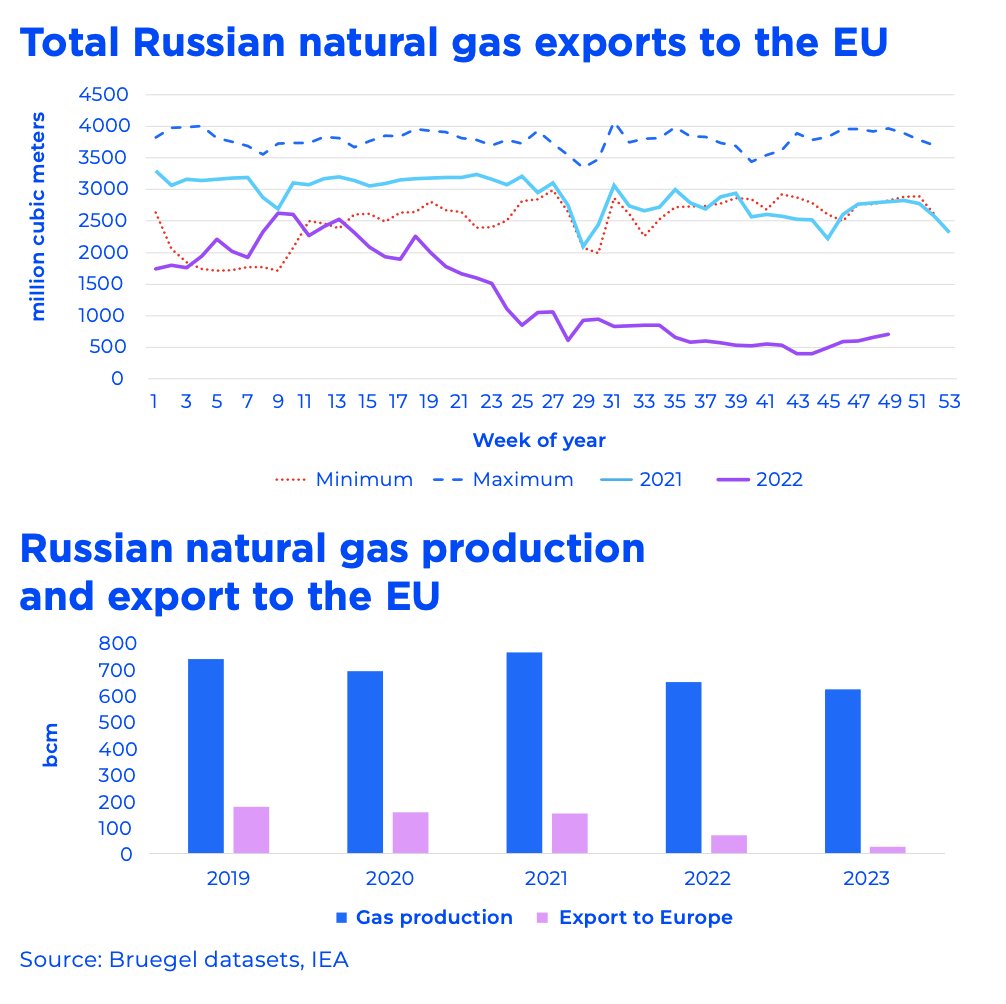
#SelfSanctions
Impact of @SelfSanctions on foreign companies’ exiting 🇷🇺 – digest KSE Institute (12.12 – 18.12)
bit.ly/3WwqTvZ
Key points below
1\6
Impact of @SelfSanctions on foreign companies’ exiting 🇷🇺 – digest KSE Institute (12.12 – 18.12)
bit.ly/3WwqTvZ
Key points below
1\6

From February 24, 144 companies completed withdrawal from 🇷🇺, 1156 companies have curtailed 🇷🇺 operations, 501 have reduced current operations and held off new investments in 🇷🇺, and 1201 companies continue to work in 🇷🇺
2\6
2\6
Companies that had already exited from 🇷🇺, had 284K personnel, $36.2 bln in revenues
Companies that declared a complete withdrawal from 🇷🇺 had 170.9K personnel, $33,4 bln in revenues
Companies that suspended operations in 🇷🇺 had 329K personnel, $48.9 bln in revenues
3\6
Companies that declared a complete withdrawal from 🇷🇺 had 170.9K personnel, $33,4 bln in revenues
Companies that suspended operations in 🇷🇺 had 329K personnel, $48.9 bln in revenues
3\6
144 companies that completely left 🇷🇺 employed 20.4% of the personnel employed in foreign companies, owned about 11.3% of the assets, and had 9.2% of capital invested by foreign companies. In 2021 they generated revenue of $36.2 bin and paid $3.2 bln of taxes
4\6
4\6
This week’s focus was on New Year & Christmas spendings in 🇷🇺
Gifts for Russians became more expensive by 20% compared to last year, including due to the fact that it was necessary to establish cooperation with other suppliers
5\6
Gifts for Russians became more expensive by 20% compared to last year, including due to the fact that it was necessary to establish cooperation with other suppliers
5\6
It is expected that Russians will have to spend 15-20% more on setting the New Year's table than last year
The inflationary shock caused by the sanctions led to an increase in the cost of almost all products that are part of the traditional New Year's holiday dishes.
6\6
The inflationary shock caused by the sanctions led to an increase in the cost of almost all products that are part of the traditional New Year's holiday dishes.
6\6
• • •
Missing some Tweet in this thread? You can try to
force a refresh








